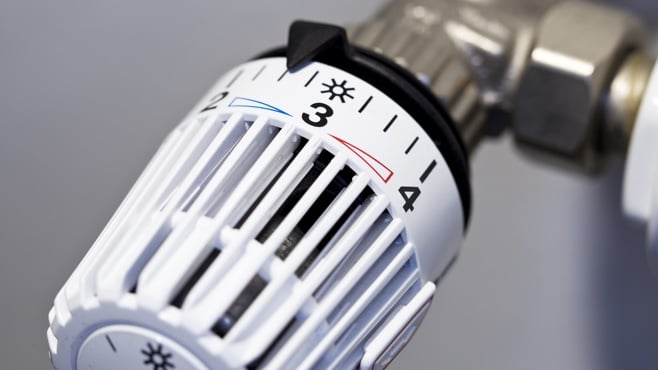
Heating oil suppliers shropshire is a crucial component for keeping your home warm and comfortable during the colder months. However, the costs associated with heating oil can vary significantly throughout the year due to seasonal fluctuations and market dynamics. To ensure that you’re prepared for these variations and to manage your heating expenses effectively, it’s important to develop a solid budget. Here’s a guide on how to budget for heating oil costs throughout the year.
1. Understand Your Heating Oil Consumption
The first step in budgeting for heating oil is to understand your home’s consumption patterns. This includes:
- Historical Usage: Review your heating oil consumption from previous years to estimate how much you’ll need. If you’re new to heating oil, you might need to start with an estimate based on your home size and insulation quality.
- Tank Size: Know the capacity of your heating oil tank and how often you typically need a refill. Larger tanks might require fewer refills but involve higher upfront costs.
- Efficiency: Consider the efficiency of your heating system. Older systems may consume more oil compared to modern, energy-efficient models.
2. Monitor Seasonal Price Fluctuations
Heating oil prices can fluctuate throughout the year based on factors such as supply and demand, geopolitical events, and weather conditions. To budget effectively:
- Track Prices: Keep an eye on heating oil prices throughout the year. Historical data and current price trends can help you anticipate changes.
- Seasonal Patterns: Prices often rise in the winter due to increased demand. Conversely, prices may be lower in the summer when demand is lower. Understanding these patterns can help you plan your purchases.
3. Explore Budget and Pre-Payment Plans
Many heating oil suppliers offer budget and pre-payment plans that can make managing your costs easier:
- Budget Plans: These plans allow you to spread your heating oil costs over 12 months. You make regular, fixed payments throughout the year, which can help you avoid large bills during peak heating season.
- Pre-Payment Plans: Pre-pay for your heating oil at a locked-in rate, potentially saving money if prices increase later in the season. This can also simplify your budgeting by consolidating your heating expenses into one upfront payment.
4. Estimate Annual Heating Costs
Calculate your estimated annual heating oil costs based on:
- Usage Estimates: Multiply your estimated annual consumption by the average price per gallon. Adjust this estimate based on historical data or supplier quotes.
- Additional Costs: Factor in any additional costs such as delivery fees, maintenance, and potential repairs. These costs can add up and should be included in your budget.
5. Set Aside an Emergency Fund
Unforeseen circumstances, such as a harsh winter or unexpected price hikes, can impact your heating oil costs. It’s wise to set aside an emergency fund to cover these potential additional expenses. Aim for a reserve that could cover at least one additional delivery or a significant price increase.

6. Utilise Energy Efficiency Measures
Improving your home’s energy efficiency can reduce your overall heating oil consumption, helping you stick to your budget:
- Insulation: Ensure your home is well-insulated to minimise heat loss. This includes insulating walls, attics, and floors.
- Thermostats: Use programmable thermostats to optimise your heating schedule. Lowering the temperature when you’re not home or at night can lead to significant savings.
- Regular Maintenance: Keep your heating system well-maintained to ensure it operates efficiently. Schedule regular tune-ups and address any issues promptly.
7. Monitor and Adjust Your Budget
Your heating oil budget should be dynamic and adjustable based on changing conditions:
- Track Spending: Regularly review your heating oil expenses and compare them to your budget. This helps you stay on top of any deviations and adjust your spending accordingly.
- Adjust as Needed: If prices rise or your consumption changes significantly, update your budget to reflect these changes. This proactive approach can prevent unexpected financial strain.
8. Consider Alternative Heating Solutions
If heating oil costs become a concern, explore alternative heating solutions that might be more cost-effective:
- Hybrid Systems: Some homes use a combination of heating methods, such as a heat pump and heating oil, to balance efficiency and cost.
- Renewable Energy: Investigate renewable energy options, such as solar or biofuel systems, which can offer long-term savings and environmental benefits.
Conclusion
Budgeting for heating oil costs requires a thoughtful approach and regular monitoring. By understanding your consumption patterns, tracking price fluctuations, exploring payment plans, and incorporating energy efficiency measures, you can manage your heating oil expenses effectively throughout the year. Setting up a solid budget and preparing for unexpected changes will ensure you stay warm and financially comfortable no matter how cold it gets outside.
Implementing these strategies will help you take control of your heating oil costs and enjoy a worry-free heating season. Start planning now, and you’ll be well-prepared for whatever the year brings.







